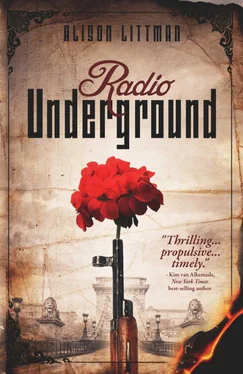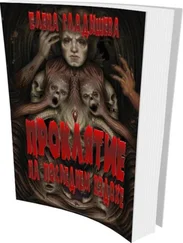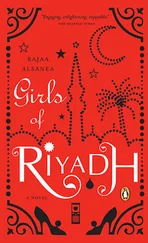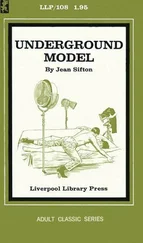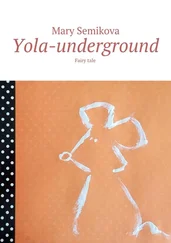Trying to find some comfort, Dora touched the note tucked away in her pocket, a habit she developed years ago. It always calmed her down when she needed it most. Crumpled and softened from wear, Dora held the note to her cheek, breathing in the faint opium scent lingering on it still. Dora could no longer make out its words, but she knew them by heart.
Dearest Dora,
Now that Boldiszar is gone, I think of you constantly. He loved you like a sister. The day before he was killed, I talked to him briefly. He said, if anything happened, to tell you he loved you. It was a simple request, but I’ve had a hard time doing it. Your father said we can have no communication, but I want Boldiszar to be remembered exactly as he wanted. I’m leaving you this note in hopes you’ll find it. I hope that when you’re cold, you’ll reach your hand into your pocket and find comfort in the memory of my son. He would want that.
Sincerely, Agnes
Dora wondered what Boldiszar would think of her now—would he be proud? Whenever Boldiszar asked her what she wanted to be, Dora always said she’d work for the government. She never thought twice about it—that’s what Ivan did, and that’s what she would do. Despite his anti-communist ambitions, Boldiszar never pushed anything on Dora. He always seemed so pleased when she told him she wanted to follow in her dad’s footsteps. But, now Dora wondered if Boldiszar would suggest she seek a different position—one that didn’t involve stalking a seemingly harmless young man.
Boldiszar thought he would lead an illustrious career as a politician, though there wouldn’t have been a place for him in Hungary’s government now, anyway. The revolution he fought for died just as quickly as it started. Gerő had been ousted but once Imre Nagy, the revolution’s reluctant leader, declared Hungary’s withdrawal from the Warsaw Pact, the Soviets moved in. They captured Nagy and replaced him with his second-in-command, János Kádár.
Kádár complied with Soviet wishes, promising to put an end to the country’s counter-revolutionary elements. Authorities rounded up thousands of people, many of whom had only minimal involvement in any sort of underground activities. Regardless, they disappeared with everyone else. Meanwhile, those who aligned themselves with the Soviets, and their distinct wishes, like Ivan, came out ahead.
The thud of a door opening reverberated near Dora. She wished she hadn’t heard that thud. She wished she wasn’t standing there in the cold and that she hadn’t been assigned this job by Joszef. She wished for yesterday, even. Anything would be better than this.
When Dora saw Ferenc emerge from the ministry’s large doors, she closed her eyes and made one last wish—that he would be safe. She pressed her back against the wall, hiding in the shadows, and watched him. He put his hat and gloves on at the pace of a stiff old man. He looked hurt, wincing with every movement. He wobbled slowly on the sidewalk, his hands flared out, ready to break a fall. Witnessing Ferenc make his feeble ascent into daylight, an unwelcome sensation overcame Dora—she wanted to hug him.
He increased his pace as he adjusted to navigating the icy sidewalk. Soon, he crossed the street and Dora, running on her toes, lunged to keep up with him. Strangely enough, Ferenc headed straight for the university. He walked through the courtyard and the maze of gothic buildings, then slipped into the back entrance. Sidling through that same door, Dora snuck in behind him.
Dora found herself in a library with high ceilings and light-yellow bricks that reached up to an expansive skylight. The library was virtually empty, which meant Dora would need to hide quickly before Ferenc saw her. She crouched behind the bookcase opposite Ferenc and watched him search the shelves. A constellation of cuts and bruises spread across his face, and through his scabbing lips, she could see him mouthing the words “Radio Free Europe.” She wished he would just stop his obsession with the radio program and lie low for a while. She thought about writing him some sort of anonymous letter warning him to cease interacting with and talking about Radio Free Europe for a few months, until further notice. Knowing Ferenc, that would encourage his obsession even more.
Without warning, his eyes shot up from the spines of the dank and moldy books and peered through the bookshelf. They ran straight into Dora, who jumped back against the bookcase behind her, knocking two books onto the floor. She nodded at Ferenc, as if greeting a stranger, and scurried away.
“Excuse me,” Ferenc said, following her. “Wait.”
Dora found herself heading toward a dead end.
“Sorry, I think I’m lost,” Dora said, looking down as she scooted past Ferenc.
Ferenc stopped her, gently grabbing the crook of her arm. “You look familiar.”
Dora studied Ferenc’s lips. She almost forgot she had heard him speak that night at the bar. He didn’t sound anything like Mike, who she only knew through his broken English. Ferenc’s voice had a soft yet masculine quality to it, as if there was something important he had to say, if she would only listen.
“What is your name?” Ferenc asked.
Craving to hear him speak more and rationalizing it as a ripe intelligence-gathering opportunity, Dora conceded. “Anika.”
Ferenc’s mouth shot open, stretching his entire face into a look of shock. “Anika! That’s right. Of course. What are you doing here?”
“What are you doing here?”
“Who cares. What happened to you after the police came? I’m sorry I was caught up… I couldn’t help…. They took me to jail.”
Dora didn’t know what to say. She didn’t want to talk about the incident with the police, fearful of where that may lead. Instead, she purposefully dropped the book in her hands, hoping it would give her an excuse to pick it up, and leave.
Ferenc beat her to it, stooping to the ground to meet Dora. “You’re reading a book on the Russian monarchy? That is completely ridiculous!” He leaned into Dora’s forehead and whispered, “Anika, it’s all bullshit, you know.”
Ferenc winked at Dora, who felt a lightness swirl inside of her.
“I have to go.” Dora shot up.
“Wait. Are you hungry?”
“No, I’m not, I’m sorry.” Dora hadn’t eaten since yesterday, her stomach too unsettled in the morning to permit her breakfast lately. Today she couldn’t get down lunch either. Dora prepared to excuse herself when she noticed how pale Ferenc looked.
“Are you okay?” Dora reached for his arm, helping him up.
“I’m sorry. I’m just… tired.”
“ You need to eat.” Dora wanted to help him, and she knew she could justify it to Joszef—if something happened to Ferenc, they wouldn’t have anything to show for her work. She led Ferenc outside and bought him some chocolate and water. Dora watched as he regained the color in his cheeks.
“You know, I have been thinking about you.” Ferenc peeled back the wrapper on his second bar of chocolate. “I didn’t think I would ever see you again.”
Dora felt hopeful for a moment. It made her nostalgic. She used to feel it all the time as a child, especially when she was with Boldiszar. Dora took a deep breath and refocused herself. She could not allow her feelings for Ferenc to build. He was a work assignment.
“Well, it looks like you’re feeling better.” Dora stood up. “I really should go now.”
“Wait! I just really need help with one more thing…,” Ferenc looked up, his eyes seeming much more focused now.
“What?”
“You have to listen….”
“Listen to what?”
“ Shhhhhhh … just listen.” Ferenc grinned and looked at his watch.
Seconds later, a chorus of pianos burst from the building across from them. With tremendous force, the music careened out the windows, smashing into passersby who, struck and stunned, stopped dead in their tracks. Dora paused too—there had to be at least ten pianos in there playing at the same time, perfectly synced with one another.
Читать дальше
